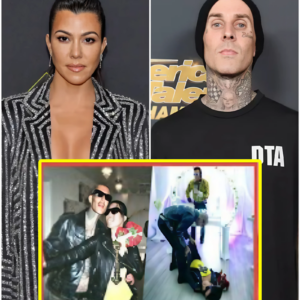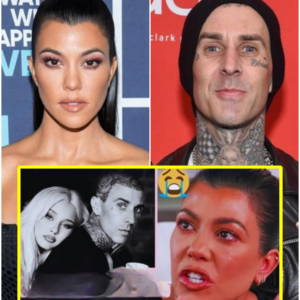Signing with Bad Boy Records seemed like a dream come true for The LOX, a group comprised of Jadakiss, Styles P, and Sheek Louch. At the time, Bad Boy was like the Chicago Bulls or the Lakers of the early ’80s in the music industry—dominant and glamorous. However, the initial excitement soon gave way to frustration and conflict, as The LOX found themselves trapped in a deal that didn’t align with their artistic vision.
The breaking point came after a heated argument with Diddy, culminating in Styles P throwing a chair in a fit of rage. This incident marked the moment The LOX knew they had to leave Bad Boy to protect their careers and artistic integrity. They were the first artists to challenge Diddy head-on and successfully extricate themselves from their contract.Initially, signing with Bad Boy felt like hitting the jackpot. The LOX, originally known as The Warlocks, were making waves on the local scene with a demo tape produced by Jazzo. Major labels, including Death Row Records, were interested. However, Mary J. Blige, a rising soul queen in the ’90s, introduced them to Diddy, who was looking for a rap group at the time. The chemistry was instant, and The LOX signed a multi-album deal with Bad Boy.
Life at Bad Boy was lavish, with endless parties and celebrations. Diddy, known for his flashy, blinged-out lifestyle, initially renamed the group from The Warlocks to The LOX, deeming the former name too medieval. The LOX quickly became a staple in the Bad Boy lineup, featuring on tracks like “It’s All About the Benjamins,” which catapulted them to fame.
Despite the success, The LOX felt increasingly disconnected from Diddy’s commercial vision. Their debut album, “Money, Power & Respect,” went platinum, but the glossy, mainstream direction clashed with their raw, gritty style. This led to the infamous “Let The LOX Go” campaign, a guerilla marketing effort that included impromptu rallies and public standoffs, notably at the 2000 Hot 97 Summer Jam.
The tension reached a peak when Diddy refused to release them from their contract, even as The LOX hurled threats and chairs. The relentless public support and escalating conflict eventually forced Diddy’s hand. He finally agreed to release them, a decision driven by a mix of intense pressure and The LOX’s unyielding determination.
Leaving Bad Boy allowed The LOX to return to their hardcore roots. They signed with DMX’s Ruff Ryders label, where they thrived, contributing to the “Ride or Die” series and releasing their landmark album “We Are The Streets.” This move was a game-changer, enabling them to produce solo projects and solidify their place in the hip-hop world.
Despite their newfound success, The LOX never forgot their tumultuous time at Bad Boy. They often shaded Diddy’s shiny suits and flashy style, symbolizing their rejection of the commercial image they were forced into. In behind-the-scenes footage from their first tour, they mocked the outfits that made them famous, highlighting their transformation from mainstream puppets to authentic street rappers.
The drama resurfaced in a 2005 interview on Angie Martinez’s radio show, where The LOX confronted Diddy about still owning half their publishing rights. This explosive confrontation revealed the extent of their frustration, as they accused Diddy of exploiting them financially. The heated exchange underscored the deep rift between the group and their former mentor.
In the end, The LOX’s battle with Diddy was a fight for artistic freedom and financial justice. Their story is a testament to their resilience and unwavering commitment to their craft, proving that even in the glitzy world of hip-hop, authenticity and integrity can prevail.
News
(B) Travis Barker MISSED when Kourtney Kardashian returned home drunk after Kardashians party. (VIDEO)…
Courtney Kardashian made headlines just seven weeks after giving birth when she decided to attend the annual Kardashian Jenner Christmas party sans pants. Despite recently welcoming her fourth child, Rocky, with boyfriend Travis Barker, Courtney seemed anything but tired as…
(B) Kourtney Kardashian Shocking Revelation on Why Her Relationship with Travis Barker Ended. (VIDEO)…
In the public eye, Travis Barker and Courtney Kardashian’s relationship was once perceived as an unbreakable union, filled with passion and devotion. However, recent revelations paint a vastly different picture, revealing the underlying turmoil that ultimately led to its demise….
(B) Kourtney Kardashian SECRET XTAPE With Minor Justin Bieber REVIEWED by The Feds. (VIDEO)
The recent discovery of a video purportedly featuring Courtney Kardashian and Justin Bieber has ignited a firestorm within the entertainment industry, prompting intense speculation about its potential ramifications. This revelation, coupled with reports of a raid on Diddy’s home, has…
(B) EXTREMELY SHOCKING: Kris Jenner Lied About DNA Test To Khloe Kardashian As O.J. Simpson Could Be Her Father. (VIDEO)..
In a moment etched into the memories of internet users, Chris Jenner once orchestrated a dramatic DNA test to dispel rumors surrounding Khloe Kardashian’s paternity. Speculations swirled, stemming from Jenner’s revelations in her memoir “Chris Jenner and All Things Kardashian,”…
(B) Kourtney Kardashian finally shows proof her son Reign Disick is actually Justin Bieber’s son. (VIDEO)..
Courtney Kardashian recently embarked on an exciting escapade to Australia and New Zealand with her husband, Travis Barker, for his tour. However, it was their youngest son, Rain, who stole the spotlight during their adventures. With his mischievous antics and…
(B) NEWS HOT; Travis Barker Found Evidence of Kourtney Shared Baby With Justin Bieber (video)…
The rumor mill surrounding Justin Bieber and the Kardashian family has been churning for quite some time, igniting speculation about his connections with various members. While the details are murky and often sensationalized, let’s delve into the complexities of these…
End of content
No more pages to load











